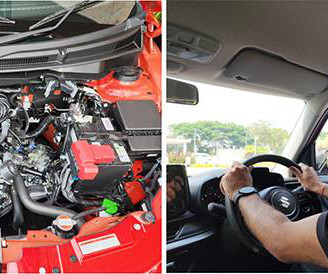Continental XL3 solenoid injector in production in 1.5L GDI engine; looking ahead to Euro 6c
Green Car Congress
JULY 25, 2013
As gasoline engines offer significant scope for reducing emissions through more efficient combustion, downsizing and turbocharging, they will play a significant part in realizing these improvements. The fast-response, high-precision solenoid injector technology prepares the ground for future Euro 6c applications, the company says.
















Let's personalize your content